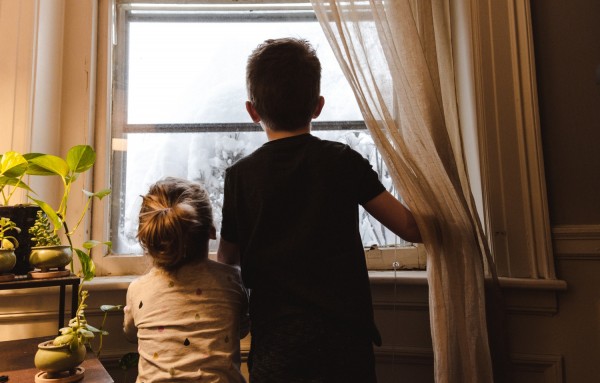Family Burnout During the Pandemic: How Can We Cope With the Situation?

After more than three months of staying at home because of the COVID-19 crisis, many families today are starting to experience burnout from spending most of their time together. Why is this, and what can we do it?
While schools are out for the summer and millions of people in the United States are jobless, we are all--couples, parents, and kids--'forced' to stay together 24 hours a day, seven days a week. Because of this, most people feel that they want to be alone, even just for a few days, and go back to their old routines before the pandemic occurred.
However, the current increase in COVID-19 cases and the deferred reopening plans in several US states may indicate that families will need to stay at home together for an even longer time-longer than they expected.
The good news is that family members can still do something to reduce family burnout and ease the tension on their relationships within the household.
ALSO READ: Top 5 Medical Terms Doctors Use That You Should Know
Symptoms of Family Burnout to Look Out for
Board-certified child and adolescent psychiatrist Dr. Pavan Madan said that there are three main symptoms families should look out for to know if they are experiencing "family burnout."
Specifically, Dr. Madan, who's with the Community Psychiatry, California's largest outpatient mental health organization, said, the symptoms include physical and emotional exhaustion, inability to handle and manage usual or regular tasks, and getting easily annoyed or irritated.
These are indications many people may be currently experiencing, the psychiatrist explained, along with fatigue being reported online.
More so, even though most people are home and apparently have all the time to do anything and everything they can, this unfathomable fatigue is turning out to be a typical phenomenon.
A 2018 survey indicated, Madan said that, even though there "was no clear data available," 50 percent of all parents suffer from burnout, and this was even before the pandemic.
Not Just Adults
Psychologists claim adults are not the only ones experiencing burnout at home. Even kids are going through it, as well.
Burnout in kids said Madan, "frequently presents as anxiety," being ill-tempered, poor performance in school, or keeping isolated from other people and not displaying an interest in
"Burnout in children often presents as anxiety, being irritable, poor academic performance, or staying isolated from peers and not expressing interest in playing," Madan said.
A recent study in Italy presented that children currently suffer from psychological effects "as a result of lockdown." They tend to be more irritable, experiencing sleep problems, and a lot of them are retreating developmentally.
DON'T MISS THIS: 50-Year-Old Chinese Man Claims "Walking Like a Monkey" Prevented Any Illnesses for 30 Years
Alleviating the Effect of Burnout in the Family
Just because a lot of families experience some kind of burnout, it does not mean that they are hopeless. Dr. Madan said that it could be avoided by balancing "family and 'me' time."
When dealing with children who may be displaying the result of quarantine or lockdown tension, he suggested that parents try using constructive and helpful reinforcement strategies when punishing them.
Such a gentle tactic, the psychologist elaborated, may be ideal for helping to discipline children while acknowledging the life struggles everyone, regardless of age, gender, location, and social status, is experiencing at present.
"Having a routine for sleep, meals, and study time can help children feel prepared for the next activity and avoid some conflicts," Madan explained.
Licensed mental health professional and CertaPet clinical director, Prairie Conlon suggested that in the case of couples, one could tell a partner to "go out for a walk" or request for some me-time "to sit in a tub with uninterrupted book-reading," whatever helps a person relax.
IN CASE YOU MISS IT: Vitamin D as a COVID-19 Breakthrough and How It Can Alleviate the Impact on BAME People
Jun 30, 2020 08:10 AM EDT





